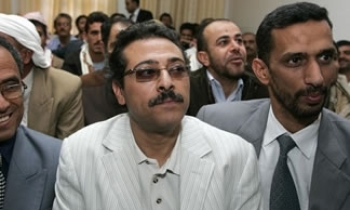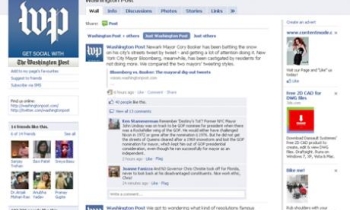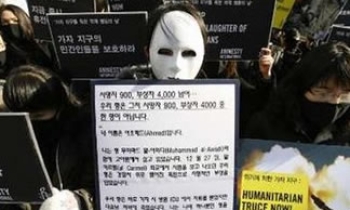NEW DELHI: Figure this out. Even as the government busies itself with a policy to put Foreign Direct Investment (FDI) from countries such as China, Hong Kong and Macau under an intense security scanner (Pakistan and Bangladesh are already excluded from the benefit of automatic FDI) even for soaps and shampoos, it is quite oblivious to the security threat posed by attempts to fudge something as sensitive as the policy allowing facsimile (fax) editions of foreign newspapers in India.
The I&B ministry's guidelines allows exact replicas or facsimiles of original foreign newspapers to be merely printed in India so that Indian readers can get the same copies of foreign newspapers that were being airlifted or shipped in until now, faster, and cheaper.
By definition, this fax edition can't carry any Indian content or advertising it has to be an exact replica of the edition printed abroad. Otherwise, it will become an "Indian edition"of a foreign newspaper, which is not allowed.
To make doubly sure that the rule is not being fudged, the fax guidelines specify that the "original foreign newspaper"of which the newspaper is a replica, can't be "specially designed"for Indian readers either.
In other words, the edition can't be changed specifically for an Indian audience. By any yardstick, these two rules should ensure that there is no question of the fax edition of a newspaper printed in India being specially customised — or published — for Indian audiences.
Official sources point out that these caveats are crucial because fax editions of foreign newspapers can be printed by a wholly-owned subsidiary of a foreign company (100% FDI) in India - while no more than 26% FDI is allowed in an Indian company that publishes newspapers in India with Indian content and advertising.
But, the Financial Times, London, which wants to get into newspaper publishing in the country, is seeking to twist these rules in complete defiance of the I&B ministry's guidelines. This is how it is cocking a snook at our lawmakers and polity.
It has created a specially designed Dubai edition earlier this year, called South Asian Financial Times (SAFT), with no cover price, no details of publishing in Dubai including authorisations, registration etc.
This edition is not counted among the four international editions of FT, London either, and is thus not a "standard""original foreign newspaper"as required under Indian rules.
Most crucially, the edition came into being around the same time as FT London applied to Indian government for permission to print a fax edition of this "newspaper"in India. Incidentally, the Financial Times title in India rests with Times Publishing House Ltd.
In effect then, SAFT is a specially created vehicle to enter the Indian market via a newly created, non-original parent edition. And this is being proposed by means of a wholly owned subsidiary of a foreign company, with 100% FDI.
This is thus truly a backdoor entry into the country, with the luxury of not having to follow the FDI guidelines for print media in India.
What is perhaps more scary, is that Financial Times, London's bypassing of the India's fax edition guidelines for foreign newspapers has much larger implications on India's external and internal security environment.
If SAFT is allowed to virtually 'publish' and not merely 'print' in the country, what stops a newspaper from non-friendly and hostile countries with huge anti-India pressure groups, like Pakistan, to use this 'surrogate' route to launch a 'fake' edition anywhere in the world and then conveniently launch it in India through fax route to further its own strategic interests?
Once allowed in, the government will be powerless in making them adhere to larger national guidelines. Since the real 'masters' of such 'fax editions' are outside this country, the jurisdiction of Indian laws may not extend to them, something that works to their advantage to blatantly push a subversive agenda against the Indian polity.
Official sources say that once allowed, specifically this Dubai route could become the benchmark for other "friends of India"— including some particularly nasty denizens of Dubai who just happen to be among the most wanted terrorists in the world — to legitimately publish their views via their own newspapers inside India. And all with 100% foreign investment.
Corporate lawyer Jagdish Agarwal points out: "Basically, fax editions of foreign newspapers were meant to help Indian readers get a cheaper and timely access to foreign newspapers and this route should not be misused as an entry option for publishing a foreign newspaper in India."
He adds that the government should put in place certain safeguards like the "original foreign newspaper"(of which the fax edition is proposed) should have an overseas circulation of at least 30,000 copies and should have been published for at least five years.
Adds Sanjay Singh, a lawyer specialising in media, "Even the most developed countries, such as United States, Australia and France, and developing ones such as Brazil, control both foreign ownership of local newspapers and publishing of foreign newspapers through strict legislation and often stricter executive fiats if someone is even as much as seen to be violating their media norms.
In fact, that is how all modern and progressive nation states operate, with newspapers (and the entire media) virtually seen and accorded the status of 'Fourth Estate', ensuring freedom of speech to its citizens, an essential participative process towards building an open democratic state capable of protecting its sovereign interests.









